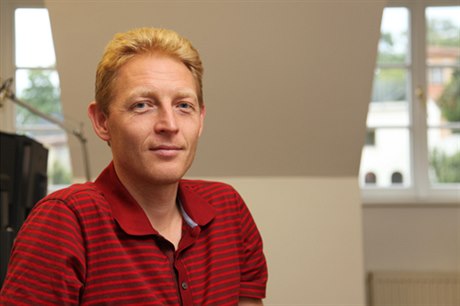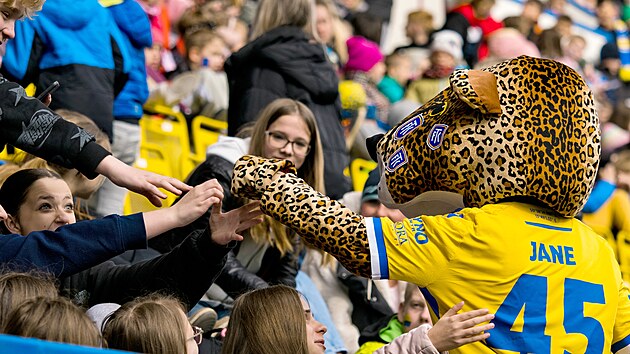Entrepreneur Karel Janeček, mathematician, algorithmic trader and founder of the company RSJ, is known in the Czech Republic as the bane of corruption who doesn’t mince his words. He took up the mantle a year ago, when he founded the Anticorruption Endowment Fund (NFPK), which has launched several major causes in the past months — especially around the scandal-ridden Prague public transport company (DPP). He also supports young Czech scientists through the Karel Janeček Endowment Fund (NFKJ).
What does Janeček think about these socially troubled times, which could result in mass demonstrations in the near future due to the immense disgust with the political situation in the country? The public should rise up; however, in his opinion, it should have a touch of “Velvet.” In an open conversation, Janeček says that he would dare to lead the protesters in Wenceslas Square and to formulate the demands of a public sick of the current Czech political scene. He also explains why we shouldn’t be reluctant to use a spicier phraseology to describe the corrupt, one that doesn’t need to be bracketed.
Of psychopaths and sociopaths
Q: You have entered the fray against corruption, and your adversaries have lodged a complaint against you. Due to the large amount of time you devote to the activities of the anti-corruption fund, you resigned from the Board of Directors at RSJ. Do you feel you’re a bit of a modern dissident?
JANEČEK: In fact, I’d say yes. A lot of forward thinking and courageous people have actively joined the fight against the local psychopaths and sociopaths.
Q: Against whom?
JANEČEK: A psychopath is someone who has no feelings. He only does what he thinks is good for him, regardless of how it harms others. A psychopath is able to kill a small child, if he thinks he might gain from it. I recommend you see the documentary Fishead, which is about such “corporate psychopaths.” The basic idea of this film is that our society is structured in the shape of a pyramid. Only a few people at the top create the conditions for the majority below. The document points out that people at the top of the pyramid are often greater psychopaths than those — in quotation marks — below.
Unfortunately, democratic systems are not perfect and sometimes these psychopaths get into power on the basis of elections. When such a psychopath comes to power, he also affects the people in his immediate surroundings, such as co-workers. So, even a relatively decent man can be infected by a psychopath. Unfortunately, the state system or public administration has no defence against these phenomena. It's a vicious circle of wickedness. Ethical values get a beating.
Q: Can you give an example of someone in state administration or politics who has met with a similar fate? Someone who has entered the circle of evil, as you describe it?
JANEČEK: A typical example, in my opinion, is Mirek Topolánek [the former prime minister and Civic Democrats (ODS) chairman]. At the start he was not an out-and-out “git,” but he let the system get to him. The final result is that the psychopath becomes a sociopath. This is someone who behaves like a psychopath, but circumstances have forced him into this state.
Q: Are the Czech “godfathers” [corrupt psychopaths or sociopaths?
JANEČEK: I think that they are mainly sociopaths. These people have hardly any ethical values; it doesn't strike them as wrong to harm others, to steal from them. As if they still lived under the motto “who doesn't steal, steals from the family.” I don’t think, for example, [controversial lobbyist] Roman Janoušek is a psychopath. But he is a complete – and forgive me the word – fucker. ‘I don’t think, for example, Roman Janoušek is a psychopath. But he is a complete – and forgive me the word – fucker.’
Q: You really don’t mince your words. Can I use that expression in the interview?
JANEČEK: I'll try to explain why I think that this word is not vulgar; rather it gives a true picture. The question is: What other term can you use for these thieves and bung-takers? Robber? — it’s like from a fairytale. A lobbyist? That insults decent lobbyists. A thief? It’s too weak. Entrepreneur? That is completely tragic. Villain? It’s like from a western. A mobster is also rather a positive word; it’s what they often jokingly use amongst themselves. It evokes a sense of adventure. Corrupt person is very weak, almost like naughty boy. The word, which best describes him is fucker, though, of course, for some it’s too rude. Another good term is “black soul.” Do you think they’d use that among themselves? I'm convinced they wouldn’t.
Q: Do you think these sociopaths, as you call them, are happy? Are they satisfied with the wealth and power they've gathered?
JANEČEK: No, I don’t think so at all. They are not happy, even if they do well for a while. Janoušek is an example. Do you think it is a coincidence that he was "pissed" on the morning he ran someone over? More than one person has told me that he's been in a bad way for quite a while now. Even if these black souls do well in the short term, they can enjoy their power for a while.Everyone licks their arse, they are arrogant to their subordinates, staff and so on. This satisfaction is short-lived.
Q: What can you do with sociopaths? Take the Mickey out of them, parody them with theatrical games?
JANEČEK: Of course, we must ostracize them. The AFE, for example, has a specific project lined up that is awaiting approval by the Board. A beautiful example is the new anti-corruption travel agency Corrupt Tour. Such activities try and get society to look on the corrupt with disrespect. And this destroys these black souls.
Klaus has extinguished and degraded ethical values
Q: Where has all the post-revolution euphoria and enthusiasm gone?
JANEČEK: In the 1990s, Czech society was hit by a wave of euphoria and enthusiasm from the fall of the old regime and the arrival of democracy. Václav Havel held values. Unfortunately, he wasn’t able to put some key things into place. Without a doubt, Havel represented ethical values, but he was no expert in economics and he lacked political experience. In technical matters, for example, he didn't manage to create a good electoral system. Indeed, I consider a change in the electoral system to be one of the most important things that must be done in the foreseeable future.
Q: What, specifically, would you suggest?
JANEČEK: To create a system that would discourage such “black souls” from entering into elections. One step that would help, would be to introduce the option of giving candidates a negative vote, circling is not enough. In addition, it would act as a weapon against populists, because the more aware voter isn’t suckered in by a populist and can cast a negative vote. It would be mathematically processed, so that, for example, it isn’t possible to cast more negative than positive votes. The second key thing is so that candidates are not on the election sheet in order. Nor should a party select a good leader who is a front for corrupt politicians. And another important note: the financing of political parties must be absolutely transparent, and have much less money than is currently the case.
Q: What else in the failed 1990s?
JANEČEK: There were people who damaged the Czech economy beyond belief. I am convinced that one of those that damaged this country the most is the current president, Václav Klaus. A group of corrupt politicians formed around him. In the 1990s, Klaus gave them power, he didn’t stop stealing, he simply turned off. Ethical values were completely degraded. It triggered a negative atmosphere in society. Now society needs a spring clean.
Q: But how do you want to go about this spring clean? Should Nečas’ government fall, giving way to early elections? How would that help?
JANEČEK: This spring clean obviously doesn't depend on me; nonetheless, I can imagine that the disgust people hold could result in demonstrations, perhaps in the autumn. This will also include local elections and elections to the Senate. Moreover, this wave of dissent could significantly affect the election of a new president. The downfall of the Government is not necessary, though it is likely. The best would be if, on the basis of popular protests, the Government was forced to adopt some of the demands – for example, a change to the electoral system and the resignation of “affair” politicians from their positions – and then to organize early elections for the Lower House. What use are new elections, when there are no changes to the system? All that would happen is new black souls get in under a new guise.
Q: How should politicians resign? Look how Pavel Bém is kicking and screaming over giving up his parliamentary mandate.
JANEČEK: I’d liken it to a kind of quarantine for infected politicians. If it turns out that a politician or civil servant is “sick,” then they are immediately put into quarantine — i.e. removed from their post until they are cured. Such a person simply cannot hold public office. I'd be strict and extend it to influential behind-the-scenes figures “making friends” with politicians — it just arouses suspicion. Look, where it got to with the Bém–Janoušek twosome. For years Bém said that his contacts with Janoušek are just speculation and lies. Whilst the reality...
Q: Why do you think that the protests could erupt in the autumn or winter?
JANEČEK: People’s annoyance will graduate. Janoušek and Bém are behind us, now the next round is Public Affairs at the Court. Plus the Unions are going on strike. It’d be symbolic if the protests culminated at the same time as the commemorations of the first year since Václav Havel’s death [in December 2011].
‘I’d be on Wenceslas Square’
Q: What do you think about the Holešov Appeal?
JANEČEK: I'm worried that it’s taken the wrong way. Really it’s a merger of Communists and the naive. It's probably worse than if there was nothing. Paradoxically, such protests could even be counterproductive. It’s like with the unions. On the whole, most of the public shrug their shoulders about them. The danger is that people start to doubt the point of public protests. After all, not even the exponents of the Holešov Appeal know what they want. They’re just unrealistic demands that are hard to put into practice. It's better to start with seemingly minor demands that are easy to grasp and, above all, carry out in the framework of democratic rules. At the same time, however, the Holešov Call is proof of one very significant fact: people are angry and disgusted with the political situation in this country.
Q: Can you see some charismatic leader, who would come to lead the protesters? Would you stand up to head the protests?
JANEČEK: I guess I could imagine it, if it was the will of the majority. But I don't want to get into politics. Of course, I don't know what will happen in a year's time. I definitely have no desire to set up a political party. Rather, I'd like to be in the background. I'd like to be independent and neutral.
Q: So you can see yourself facing the masses on Wenceslas Square and formulating the demands of a sort of Velvet Revolution version 2.0?
JANEČEK: Certainly, I can imagine it. But the protests must unfold peacefully, in the “Velvet” [Revolution] spirit. No disbanding of political parties or something similar.
Q: In its pursuit of positive changes to society, will your fund extend the scope of its activities?
JANEČEK: Yes, for instance, we cooperate with Radim Jančura [owner of the company Student Agency], who will distribute leaflets in his buses to encourage decent and ethical behaviour. So far, we don't know whether we will support some of the rallies. I myself plan to travel around the country in May and June. There will be various discussions. There are plenty of active and positive people. I’m sure it would be good to address personalities that have social standing. Be they artists or athletes. Petr Čech would be an excellent example.
Q: The blunders of the political parties have given rise to the idea that they should be banned. The philosopher Václav Bělohradský recently said: “I think that democracy is a historically obsolete form of governance, even though it chills my blood to say it.” Do you agree?
JANEČEK: Not any more. I used to think that the system should, in certain circumstances, circumvent political parties. I consider one of the best options being to create the necessary conditions, so that people do not shrink away from joining a party and getting engaged in the public sphere. We'd need maximum civil commitment. That's the only way to clean out the Czech cesspit.





